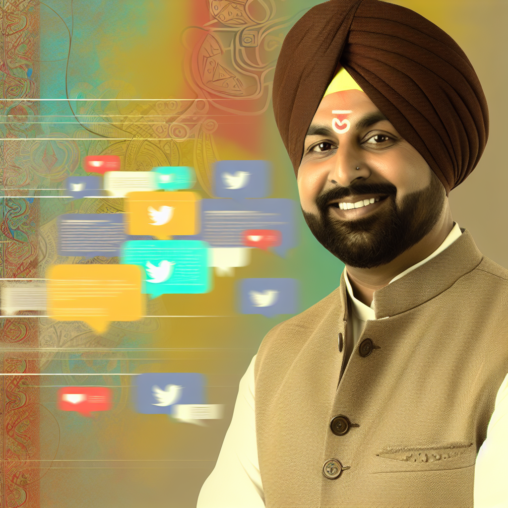Diljit Dosanjh Addresses Panjab Spelling Debate and India Flag Controversy
Popular Punjabi singer and actor Diljit Dosanjh has found himself at the center of a heated online debate. The controversy stems from his use of the word “Panjab” instead of the more commonly known spelling “Punjab,” as well as the absence of the Indian flag in one of his tweets. These minor linguistic and symbolic choices sparked a wave of conspiracy theories on social media, prompting the artist to address the uproar publicly.
The Spelling Debate: “Panjab” vs. “Punjab”
Diljit’s consistent use of the spelling “Panjab” has been a topic of discussion for some time, with certain sections of social media interpreting it as a potential political statement. However, linguistically, “Panjab” is closer to the original pronunciation in Punjabi. The term “Punjab,” which is more widely used, originates from colonial transliterations and Anglicized spellings.
In his response to critics, Diljit explained that his use of “Panjab” is not new and has been consistent throughout his career. He further clarified that this choice reflects authenticity and respect for the Punjabi language rather than any hidden agenda. Addressing the online noise, he posed a direct question to his detractors: “How many times must we prove ourselves loyal to our country?”
The Missing India Flag Controversy
The second point of contention arose when Diljit shared a tweet celebrating the Punjab Cricket Association’s announcement of a match between India and Australia at the iconic Punjab Cricket Association IS Bindra Stadium. Observant netizens quickly picked up on the absence of the Indian flag in his tweet, leading to a flurry of conspiratorial assumptions about his patriotism.
Reacting to the backlash, Diljit emphasized that the omission of the Indian flag was not intentional. He urged people to stop looking for reasons to stir unnecessary controversy, stating that such accusations are baseless and serve no real purpose. He reiterated his pride in being an Indian and a Punjabi, asking his critics to put an end to this endless cycle of doubt.
Social Media Reacts
As social media users debated the issue, supporters of Diljit were quick to defend him, calling out the trivialization of the issues at hand. Many pointed out that the spelling of “Panjab” is a personal and cultural preference, not a political statement. Others dismissed the flag controversy as an over-analysis of an otherwise straightforward tweet.
- Fans applauded Diljit for maintaining his calm and standing his ground amidst the baseless allegations.
- Several users highlighted that people should focus on celebrating achievements rather than nitpicking over non-issues.
- Some found humor in the situation, comparing it to previous instances of public figures being scrutinized for minor details.
Diljit’s Legacy and Cultural Significance
Diljit Dosanjh has always been a staunch advocate for Punjabi culture and heritage, using his platform to promote the Punjabi language and traditions globally. His work, whether in music, movies, or public appearances, often pays homage to his roots. While controversies like these may temporarily complicate his public image, his ardent fan base and widespread respect ensure his position as one of the most loved and celebrated artists.
This recent controversy is not the first time Diljit has had to address baseless allegations, and it likely won’t be the last. However, his consistent emphasis on positivity and cultural pride continues to resonate with his audience.
Final Thoughts
In a world increasingly divided by social media debates, it’s easy for minor issues to snowball into larger controversies. Diljit Dosanjh’s response to the Panjab spelling debate and the missing flag controversy serves as a reminder of the need for deeper understanding and less judgment. As the artist himself aptly put it, “How many times must we prove ourselves?”
Ultimately, it is Diljit’s artistry, his cultural pride, and his contributions to Indian and global entertainment that define him far more than any fleeting Twitter storm ever could.

